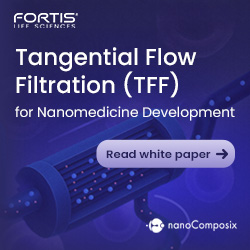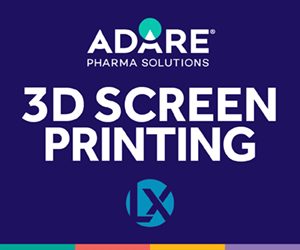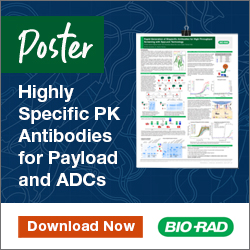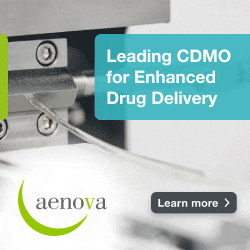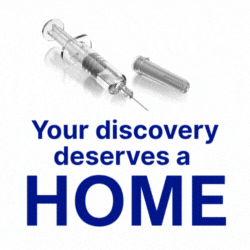11/29/2011
Biocon Launches Haselmeier’s Insulin Pen in India
Haselmeier recently announced that Biocon, one of Asia’s premier biotechnology companies, has launched INSUPen in
The INSUPen is a reusable insulin pen based on Haselmeier’s popular i-pen technology. It is designed to be easy to use for the patient and provide accurate and reliable dosing. It is available in three attractive colors and is currently custom designed for use with both Basalog and Insugen, thus maximizing patient convenience.
“The INSUPen provides diabetic patients an attractive pen with user-friendly features at an affordable cost. Haselmeier is proud to work with Biocon, a premier biotechnology company, on this important program to develop and supply INSUPen, and we look forward to a long and successful partnership,” said Volker Wirth, Director Business Development & Marketing at Haselmeier.
“I am confident that INSUPen will be a delight for patients and a value enhancer for all Stakeholders,” added Rakesh Bamzai, President, Marketing at Biocon.
Haselmeier is a leading designer and manufacturer of pen and auto-injection systems. The company’s devices feature unique function, design, and technology and are marketed by leading pharmaceutical and biotechnology companies around the world.
Established in 1978, Biocon Limited is
Isis Pharmaceuticals, Inc. recently announced it will receive up to $14 million from Pfizer Inc. for its equity ownership of Excaliard Pharmaceuticals, Inc. from Pfizer’s acquisition of Excaliard. Upon closing of the acquisition,
“Our business strategy allows us to exploit our antisense drug discovery platform to create many opportunities outside of our core areas of therapeutic focus. We have been extremely successful in implementing this unique strategy. To date, we have generated more than $450 million from our satellite company partners. Our partnership with Excaliard and their development of EXC 001 is the most recent example of the success of this strategy,” said B. Lynne Parshall, JD, COO, CFO, and Secretary at
“CTGF has been an interesting target for fibrosis for years, and now we have the clinical data that Excaliard generated with EXC 001, which shows the importance of CTGF for the treatment of fibrotic disorders,” added Brett Monia, PhD, Vice President, Drug Discovery and Corporate Development at
Isis and Excaliard entered into a collaboration in 2007 to discover and develop antisense drugs for the local treatment of fibrotic diseases, including scarring. Excaliard is a private company funded by Rivervest Venture Partners, Alta Partners, Proquest Investments, and Isis. EXC 001 was co-discovered by Isis and Excaliard and developed by Excaliard for the treatment of skin scarring. EXC 001 targets connective tissue growth factor, or CTGF, a growth factor that is over-expressed in damaged skin or tissue following a traumatic event. In early 2011, Excaliard reported positive data from three Phase II studies demonstrating that EXC 001 significantly reduced scar severity in both hypertrophic and fine line scarring. EXC 001 was safe and well tolerated in all subjects and is currently being evaluated in a Phase IIb study in patients following breast scar revision surgery.
Gilead Sciences, Inc. and Pharmasset, Inc. recently announced the companies have signed a definitive agreement under which
Pharmasset currently has three clinical-stage product candidates for the treatment of chronic hepatitis C virus (HCV) advancing in trials in various populations. The company’s lead product candidate, PSI-7977, an unpartnered uracil nucleotide analog, has recently been advanced into two Phase III studies in genotype 2 and 3 patients. Both studies will utilize 12 weeks of treatment with PSI-7977 in combination with ribavirin. One study will compare this all-oral regimen against 24 weeks of the standard-of-care pegylated interferon/ribavirin in treatment-naïve patients, and the second study will compare the all-oral regimen to placebo in interferon-intolerant/ineligible patients. A third Phase III study in genotype 1 patients will be initiated in the second half of 2012, the design of which is dependent on the outcome of Phase II studies that are evaluating PSI-7977 in various combinations in genotype 1-infected patients.
If successful, this strategy could lead to an initial
“The acquisition of Pharmasset represents an important and exciting opportunity to accelerate
“We are excited to join together with
Under the terms of the merger agreement, a wholly owned subsidiary of
The consummation of the tender offer is subject to various conditions, including a minimum tender of at least a majority of outstanding Pharmasset shares on a fully diluted basis, the expiration or termination of the waiting period under the Hart Scott Rodino Antitrust Improvements Act, and other customary conditions. The tender offer is not subject to a financing condition.
The $137-per-share price in the transaction represents an 89% premium to Pharmasset’s closing share price on Friday, November 18, 2011, the last trading day prior to announcement, and 59% to Pharmasset’s all time high closing stock price.
Valeant Pharmaceuticals Agrees to Acquire iNova Pharmaceuticals
Valeant Pharmaceuticals International, Inc. recently announced it has signed an agreement to acquire iNova, a private pharmaceutical group that sells and distributes a range of prescription and OTC products in
Valeant will pay iNova shareholders A$625 million upfront and up to an additional A$75 million in potential milestones based on the success of pipeline activities, product registrations, and overall revenue. iNova’s total 2011 revenues are expected to be approximately A$200 million and has an operating margin of approximately 40%. Revenues have grown at a rate of approximately 10% per annum over the past 4 years. The transaction is subject to certain closing conditions and post-closing adjustments and is expected to be immediately accretive.
“This transaction not only transforms our operations in the Australian market, but provides us with a beachhead in both Southeast Asia and
Valeant Pharmaceuticals International, Inc. is a multinational specialty pharmaceutical company that develops, manufactures, and markets a broad range of pharmaceutical products primarily in the areas of neurology, dermatology, and branded generics.
Medicis Buys Graceway Pharmaceuticals in $455 Million Bankruptcy
Medicis recently announced it was the successful bidder at a bankruptcy auction conducted by Graceway Pharmaceuticals, LLC for substantially all of the outstanding US and Canadian pharmaceutical assets of Graceway. Graceway filed for Chapter 11 bankruptcy protection on September 29, 2011.
Under the terms of its bid, Medicis will pay to Graceway a purchase price of $455 million. In turn, Medicis will receive Graceway’s commercial pharmaceutical product portfolio, which includes prescription products in the dermatology, respiratory, and women’s health specialties, and certain other assets. Medicis will add to its research and development pipeline a formulation-stage dermatology project with an applied-for patent and projected annual peak sales in excess of $200 million; a Phase II dermatology new chemical entity product currently patent-protected through 2016 with a potential patent term extension of up to 5 years and projected peak sales in excess of $200 million; and a nearer-term women’s health product that has completed Phase II and will soon enter Phase III with an applied-for patent and projected annual peak sales in excess of $100 million.
Additionally, Medicis will have the opportunity to launch two recently approved line extensions for the Zyclara franchise, which has several applied-for patents currently under accelerated examination in the US and related patent protection in Canada already obtained.
“We are pleased to announce this strategic acquisition of the Graceway product portfolio, and the ability to broaden our presence within dermatology,” said Jonah Shacknai, Chairman and CEO of Medicis. “We anticipate near-term positive cash flow as we market certain newly acquired Graceway products that are currently approved for various dermatological and women’s health conditions. Additionally, we are very pleased to be adding to our pipeline several mid- and late-stage products with a combined annual net sales peak potential of over $500 million in the dermatology and women’s health categories.”
Medicis is a leading independent specialty pharmaceutical company in the
Aileron Therapeutics, Roche Expand $1.1-Billion Drug Collaboration
Aileron Therapeutics recently announced that Roche will initiate a new program to expand its collaboration with Aileron to discover, develop, and commercialize Stapled Peptide drugs. The potential $1.1-billion drug development collaboration, launched in August 2010, encompassed up to five programs of strategic importance to Roche; initially Aileron launched the collaboration around two key programs in oncology. Pursuant to the expanding relationship, Aileron and Roche will now commence work on a third program focused on inflammatory diseases.
Aileron also announced that it achieved a key milestone under the collaboration agreement triggering a substantial milestone payment related to in vivo proof-of-concept against one of the programs of importance to Roche. Financial details of the agreement and milestone payment are not being disclosed.
“In our first program, this collaboration has already demonstrated in vivo proof-of-concept in multiple models, and shown novel mechanistic capabilities,” said Jean-Jacques Garaud, global head of Roche Pharma Research and Early Development. “We now want to expand our work with Aileron and broaden the impact of Stapled Peptides in our portfolio to create drugs for disease targets that are intractable using currently available modalities.”
“We have now demonstrated in conjunction with a world-class drug development partner that – as we expected – our Stapled Peptide drugs are capable of addressing targets, in manner and effect, that have eluded small molecules and antibodies,” added Joseph A. Yanchik, III, President and CEO of Aileron. “Given the potential impact of this technology and the associated scrutiny, it was essential for us to set a high bar and show early success with a partnered drug discovery program. I also want to acknowledge the tremendous work done by the combined Aileron-Roche team over the past year to deliver this rapid progress and look forward to our efforts to bring these drugs to patients. Independent of our agreement with Roche, Aileron is pursuing several programs designed to provide clear clinical proof-of-concept for Stapled Peptides drugs and a rapid path to market in areas with significant unmet needs, including infectious diseases and muscular degenerative diseases.”
Aileron Therapeutics is a world leader in stabilized peptides. The company has built a powerful drug discovery engine centered on the multiple chemical-linking technologies comprising the company’s proprietary Stapled Peptides platform. Aileron’s platform enables the company to create drugs for important diseases that are implicated by highly sought after biological targets not well served by current small molecule or antibody approaches. Aileron’s Stapled Peptides have demonstrated their unique ability to penetrate cells throughout the body and the company is developing a portfolio of Stapled Peptide drugs for the treatment of cancer, infectious disease, metabolic disease, and immune/inflammatory diseases.
Total Page Views: 2112








